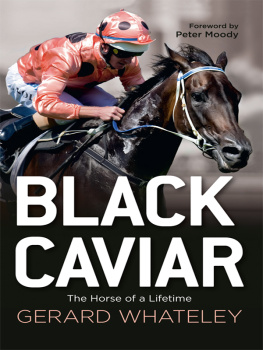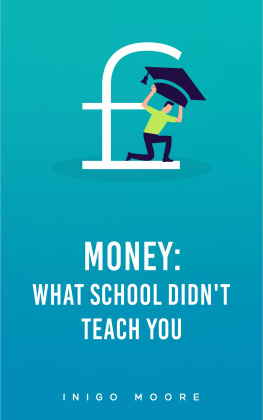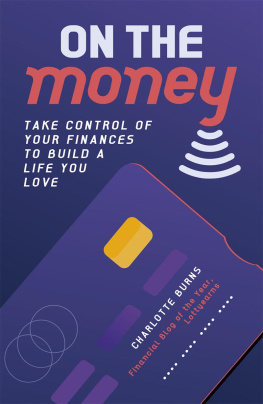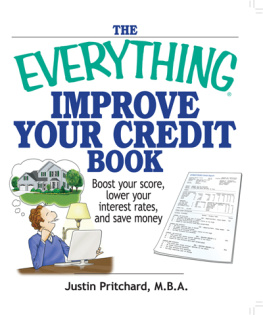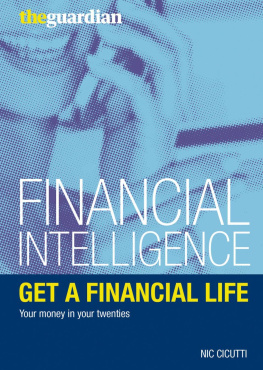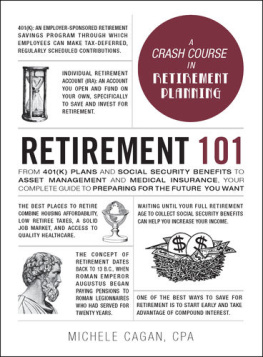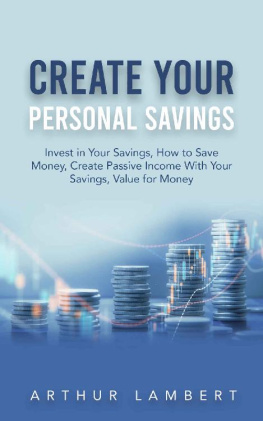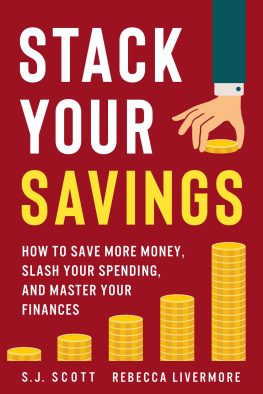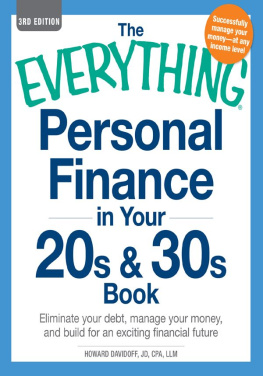
4th Estate
An imprint of HarperCollinsPublishers
1 London Bridge Street
London SE1 9GF
www.4thEstate.co.uk
This eBook first published in Great Britain by 4th Estate in 2018
Copyright Laura Whateley 2018
Laura Whateley asserts the moral right to be identified as the author of this work
A catalogue record for this book is available from the British Library
The information in this book is for general guidance only and is not legal advice. If you need more details on your rights or legal advice about what action to take, please see an advisor or solicitor. Please note that neither HarperCollins nor the Author offer investment advice. All financial investments carry risk. You should therefore seek independent financial advice before making any investment.
All rights reserved under International and Pan-American Copyright Conventions. By payment of the required fees, you have been granted the non-exclusive, non-transferable right to access and read the text of this e-book on-screen. No part of this text may be reproduced, transmitted, down-loaded, decompiled, reverse engineered, or stored in or introduced into any information storage and retrieval system, in any form or by any means, whether electronic or mechanical, now known or hereinafter invented, without the express written permission of HarperCollins
Source ISBN: 9780008308315
Ebook Edition August 2018 ISBN: 9780008308322
Version: 2018-08-24
To Mum and Dad
Contents
This is a little guide that I could have really done with ten years ago, when I was twenty-three, and fresh off a First Great Western into London, one of the worlds most expensive cities, ready to start my first full-time job as the global economy crashed. Here I address the things I wish I had known about money earlier (the younger you start saving the more time your money has to grow) but was too embarrassed to ask. I assumed everybody else already had it nailed. Turns out that most did not, and still dont, whatever their seeming competency at being an adult.
My aim is to make sense to those of you who write yourselves off as bad with money, the way I once did and often still do, as you stare down the barrel of your overdraft. It does not have to always be this way. Anyway, what does being bad with money even mean? Failing to check your bank balance regularly and not putting enough in a pension? Or putting so much in your pension that you havent had a holiday since 2005? Who is to judge?
Here is a secret: everyone is bad with their money sometimes, some people are just better at styling it out and not letting on, some are rich enough that they can keep it well hidden. We are psychologically programmed to make poor financial decisions. Theres a whole Nobel-prize-winning area of academia, known as behavioural economics, to describe how. And because no one likes talking about money, and no two people agree on what it is for, whether it is better to spend it or to save it (clue, there is no right answer), the myth that others know what they are doing is rarely exposed.
So read on if you have ever wanted to know, what actually is an ISA? What tax do I pay and why? How much should I be saving towards retirement? Should I be investing any money, and if so, how? Should I pay off my student loan? How do mortgages work? What are the best budgeting apps? How do I split money with my other half fairly, and can I ever afford to buy a home, bring up a child, or be the kind of person at ease in small-plate restaurants? What stupid mistakes am I making with my money, and how can I stop it making me feel so crap about myself?
Get through this in an afternoon, and you should know a lot more than you did this morning. I can guarantee that if you follow at least a couple of tips in this book you will have already reimbursed the cover price.
But first, a bit about me, us feckless millennials, and where we are at.
Please note that I use the term millennial reluctantly. It is a word that has come to make me itchy, a crude catch-all for the 14 million or so very different people born between the early 1980s and the year 2000, some of whom are now parents of teenagers, your boss, your lawyer, your surgeon, or your favourite novelist.
In September 2008 I went for an interview for a role as editorial assistant on the Money section at The Times, the optimistic move of a young graduate not yet grown into the full self-doubt phase. The night before, Id been up late Wikipeding what is a mortgage?
The timing of this interview, the beginning of my career so far, was significant, though I didnt see how at the time. Two weeks earlier the worlds fourth-largest investment bank, Lehman Brothers, had collapsed. The headline on the front page of The Times on the day of my interview was alarming: the eye of the storm, with a photograph of black clouds gathering over the White House. The introduction read:
The financial system lurched closer to a catastrophic breakdown last night after the US Congress dramatically rejected a bailout plan designed to restore confidence to paralysed banks. Wall Street suffered one of its worst days in history.
In 24 hours five banks across the West, including Britains Bradford & Bingley, had to be rescued to avoid insolvency the Dow Jones industrial average of shares dived almost 800 points, losing 7 per cent of its value. It was the worst one-day points fall and the worst percentage fall since Black Monday in 1987.
I had little understanding of what all this meant (Dow Jones industrial average, eh?). Nor many of the increasingly panicked headlines that followed over the next few weeks: World takes fright The scramble to sell: 2.7 trillion wiped off the global value of shares Banks nationalized Slump pushes jobless towards 2 million.
I would learn, as I explained hopefully to my new editors. They, unbelievably, took me on. A money journalist is one of those things, like Tupperware and condoms, that you need more of in a recession.
Exactly a decade later, still writing for The Times about consumer affairs, now helping readers with their financial woes and blunders as the consumer champion known as Troubleshooter, I see how much those few weeks changed the world, not least for those of us who received our first pay cheques in the period since the financial crisis took hold.
Lots has improved, as Ill explain through this book. Banks are desperate to win back our trust, and technology has created countless new opportunities to make it easier to manage money well. But there has been a lasting difficult legacy, especially for those, such as my sister, who are a few years younger than me. Most under-thirties, however diligent, will never be able to buy a decent-sized home in a great part of an exciting British city on their salary alone, especially not while their incomes are reduced by student loans for decades and they are simultaneously trying to save enough into a pension to afford their heating bills when they reach ninety.
Jobs are insecure, wages static. Many, whatever their age, now work longer hours in smaller teams of staff, doing more for relatively less money than their seniors ever did at the same age. The spectre lingers of another recession and a further round of redundancies.
This is coupled with navigating the money-related dilemmas that come as part and parcel of growing up, whatever generation you were born into: how to become financially independent from your parents, how to work out money with your friends without being consumed by status anxiety, how to provide both for yourself and for your family, how to earn more and spend less without missing out on the things that make you happy and life worth living.


